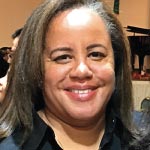We are hitting the summer months and as the 4th of July approaches, many of us look forward to celebrating our nation’s birthday with barbecues, music and laughter either in our backyards or at parks with family and friends. While we gather to enjoy these parties, police officers will be diligently working to ensure everyone can enjoy a peaceful and uneventful holiday. However, those of us in law enforcement know that beneath the surface, the potential for violence always lingers.
When we hear fireworks crackling in the sky, there’s an uneasy reminder that those sounds can sometimes be mingled with gunfire. I, as well as many of my colleagues working in the Bayview district can attest to the many times we responded to shootings during this holiday. Tragically, innocent bystanders can get caught in the crossfire, turning a joyous celebration into a scene of sorrow. Independence Day is meant to be a time of enjoyment, where families come together to watch fireworks, much like millions have done in the past. Yet, in recent times, the worry that a loved one could be harmed while partaking in such simple pleasures has become all too real. One only has to look back four short years ago to the tragic killing of Jace Young, a life cut too short, too soon. We recently saw in the news about 15 people shot in Oakland as they tried to celebrate the Juneteenth holiday. Gunfire is too frequently happening at gatherings that are supposed to be celebrations in a safe environment.
Our nation was founded on the principles of life, liberty, and the pursuit of happiness. Yet, the increasing frequency of disruptive events like sideshows are in contrasts to these ideals. While these so call “harmless activities” may bring joy to a few, they often cause inconvenience and harm to the majority. Similarly, the trend of protesters blocking freeways poses significant challenges. These actions, while intended to draw attention to causes, disrupt the daily lives of countless citizens. They prevent people from getting to work, attending crucial medical appointments, or catching flights for long-anticipated vacations. They cause police to be be on standby constantly and taken away from other duties.
Protesters might argue that these disruptions are a small price to pay to highlight societal issues. However, the question arises: who has the right to decide what constitutes an acceptable inconvenience for others? Are we now at a point where we disregard how others feel and the impact on their lives? This lack of consideration extends beyond individual actions to governmental decisions as well.
A recent example is the decision by the Health Service Commission to opt for a cheaper healthcare alternative for retirees, saving the city a reported $67 million dollars. While cost savings are significant, retirees who depend on consistent, quality healthcare are less concerned with the city’s budget and more with their well-being. The switch to a cheaper plan often means losing access to trusted doctors and the continuity of care that is crucial during health challenges. And these challenges can be significant from the cancer diagnosis that many retirees especially police and fire face, to other health ailments. What about the retiree who has moved out of state? Will they get the quality care they expect, or will they be penalized for their decision to pick up and live their golden years elsewhere other than the Golden State? Unfortunately, the city’s focus remains on financial savings rather than the human element of healthcare.
After watching the archived meetings on this issue, it became clear that the city’s decisions are driven by what they perceive as best for their interests, not necessarily what is best for the retirees. This distinction highlights a fundamental disconnect between policy decisions and their impact on individuals’ lives. When the Mayor decided to remove her appointee who sided with the retirees and replaced that person with one who would vote against them, it felt like a betrayal—a betrayal for all who worked for the city, who tried to do their best and expected the city to do what is best for them. I am sure others will say that the deficit the city is facing necessitates doing what is fiscally responsible at this point in time, but it is a bitter pill to swallow for those who question how fiscally responsible the city has or hasn’t been in the recent past which has led to the current deficit the city has to reckon with.
As we enjoy the summer months and celebrate our nation’s independence, let’s also take a moment to reflect on how our actions and decisions affect those around us. Whether it’s through individual behavior or institutional policies, considering the human element is crucial in creating a society that truly values life, liberty, and the pursuit of happiness for all its members.

